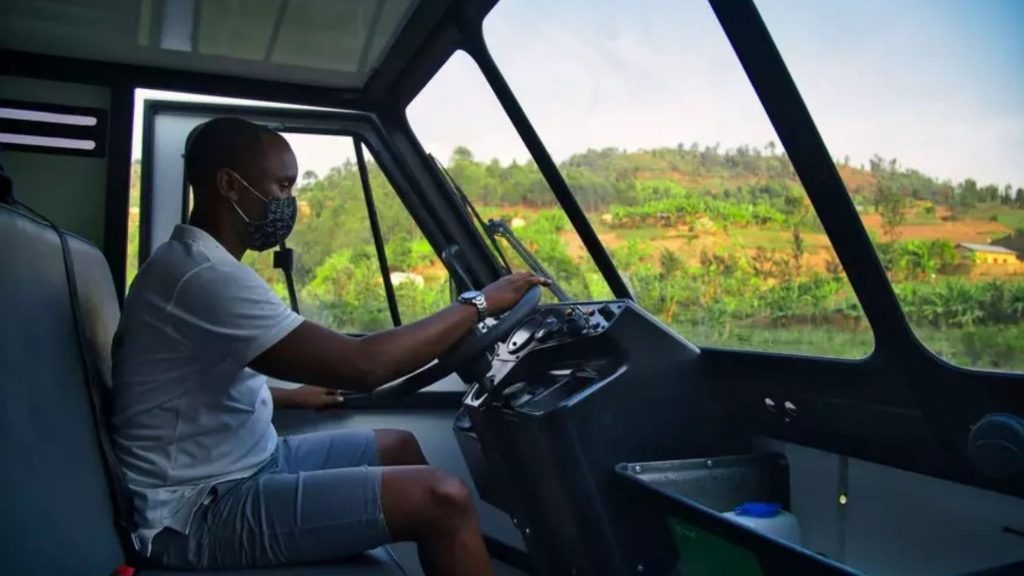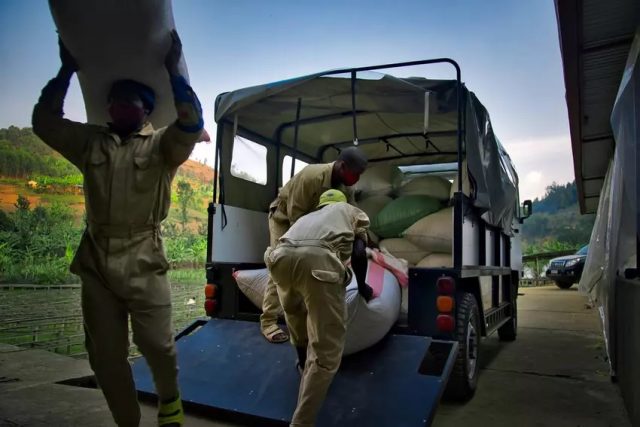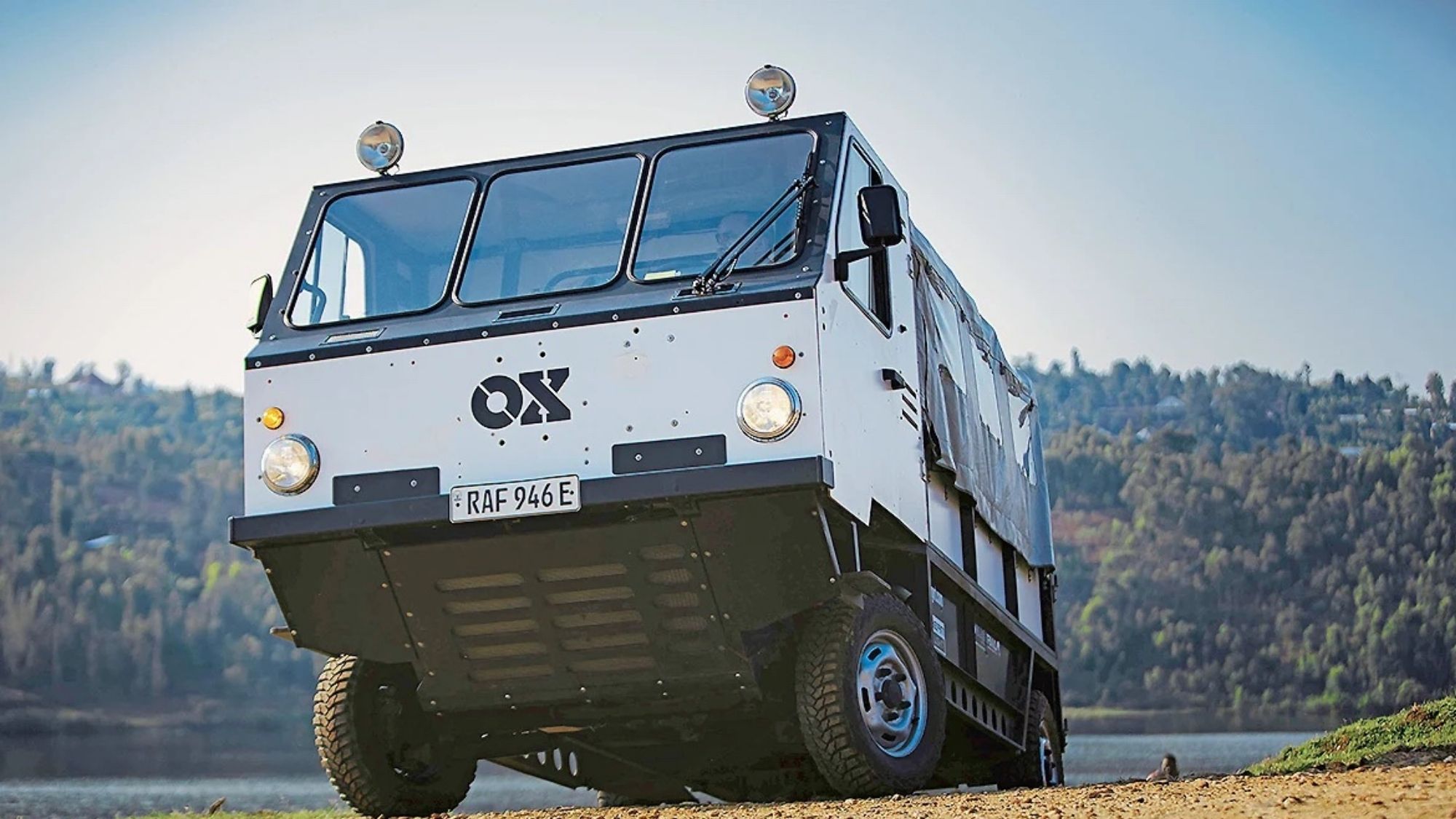Inbox icons, subject line sorcerers, CTA kings – the results are in. The 2025 You Mailed It Awards by Everlytic have crowned their champs, with Old Mutual Rewards and Machine_ taking…
Africa’s innovators turn to tech to tackle transport woes

In sub-Saharan Africa, vulnerable groups face long, pricey and dangerous commutes. Now tech innovations are increasingly helping people get around affordably and safely.
After a minibus taxi driver threatened to throw her out on the street for asking him to slow down as he raced down the highway, South African nurse Lebogang Matjila scoured the internet for a safer, cheaper way to get to her patients.
When she found Planet42, a rent-to-buy car company that said it would help her eventually own her own vehicle, she thought it sounded too good to be true.
“I had been scammed once before, but I filled in my details and applied online because desperation can do that to you,” said the 42-year-old mother of two from Pretoria.
“Some may say it’s just transport, so it’s not so important. But you can only say that in South Africa if you don’t care about your safety,” she told the Thomson Reuters Foundation in a phone interview.
About 33% of sub-Saharan Africa’s urban population has access to public transport, in contrast to 75% in Europe and North America, according to United Nations statistics.
To help people get around safely and affordably, Africa’s innovators are looking to technology, from a data-driven company that helps South Africans with bad credit buy cars to an app-based truck service delivering potatoes and more in Rwanda.
“Transport is a very important piece in the puzzle of people accessing jobs, feeling included and realising their potential,” said Planet42 founder Eerik Oja in a video interview.
Using algorithms to detect applicants who have been “unfairly ignored by banks”, the social enterprise has helped put some 8 000 insured cars on the road in the past five years, Oja said.
Planet42’s machine learning tracks thousands of public data points from credit bureaus – such as credit scores – to calculate who is eligible to rent a car from them and eventually buy it at a reduced cost.
“As we get more data, we get better at determining which customer is a good risk to take, so we can actually keep lowering the price of our service,” said Oja.
The Covid-19 pandemic pushed tens of thousands of South Africans into arrears, he said, adding that those are the kinds of “blacklisted” customers Planet42 can help as they try to rebuild their credit scores.
For Matjila in Pretoria, it was unpaid store credit from her student days that destroyed her score and left her unable to get a loan, even after she had paid it off.
Since getting her car, she said her income has doubled as she is able to travel to more patients every day.
“There are so many other blacklisted South Africans stuck without solutions and without safe transport,” she said. “Tech solutions that they can access from their homes or phones could change their lives, too.”

Democratising mobility
Transport inequality – the unequal distribution of travel resources such as cars or public transport – reinforces socio-economic divides while impacting livelihoods and safety, transport researchers say.
In Africa, vulnerable groups living in informally developed urban areas on city peripheries can face long, pricey and often dangerous journeys to work, according to a 2020 report by research financing group Volvo Research and Educational Foundations.
While Planet42 focuses on car ownership to advance what it calls the “democratisation of mobility”, OX, a new truck company in Rwanda’s Western province, is helping small business owners move everything from cows to coffins.
Launched in March 2021, OX allows customers to rent a spot in one of their eight trucks on a pay-as-you-go basis, all coordinated through an app managed by the driver.
For many of OX’s customers, previous options for moving their stock were bicycles, donkeys or porters, which limited how much and how fast they could sell.
The company has gained more than 300 customers since its launch and is growing 40% month-on-month in terms of revenue and volume, said managing director Simon Davis, adding that one customer – an animal feed supplier – has tripled his sales since he started using the service.
“If you move stuff, you make more money,” said Davis. “If you make more money, you can afford to access healthcare, send your kids to school, look after yourself … all byproducts of economic progress.”

No silver bullet
As in the rest of the world, mobile phone use is rising in Africa, driving a surge in apps designed to help people get around their cities safely and cheaply.
By the end of 2020, more than 45% of sub-Saharan Africa’s population subscribed to mobile services, with nearly 20 million people signing up just in the previous year, according to telecoms lobby group GSMA.
“We’re seeing a massive increase in ride-hailing platforms for motorcars and motorcycle taxis,” said Sam Clark, head of programmes at transport charity Transaid.
In Uganda, where research published in the journal Transportation Planning and Technology estimates there are half a million motorcycle and three-wheeler taxis, SafeBoda uses an app to link commuters with trained and reliable drivers.
Female riders interviewed by the researchers said they felt safer not having to negotiate prices with drivers and being able to identify and track their drive on the app.
But tech solutions are no silver bullet, warned Clark, citing poor connectivity in rural areas and noting that half of the African population still has no access to a smartphone.
More work needs to be done to make regular public transportation more accessible to everyone, he said – and that includes more investment in infrastructure and more women in senior roles.
“Many of the decisions concerning service delivery are made by men, for men,” said Clark, whose work at Transaid includes efforts to boost female leadership in transport.
“When more women are part of the decision-making process, greater consideration will be given to the needs of women as passengers.”
For nurse Matjila, filling in that online application has meant she can now choose whether to be a passenger or drive her own car, which has made her feel safer, increased her income and lets her spend more time with her family.
“To be honest, it changed my life,” she said.
- Report by Kim Harrisberg from the Thomson Reuters Foundation.
Read more: Mobility tech startup secures R42 million

